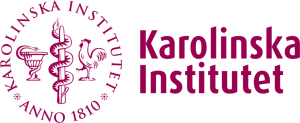In line with EU and participating member states’ policies, the ambition of our European Implementation Science Education Network (EISEN) is to accelerate the closure of the well-documented gaps between evidence generated from research, and its use in health and social care. Estimates are that between 20-40% of patients in EU health systems are estimated to receive interventions that are inconsistent with scientific evidence (Seers et al., 2012). Failures of implementation are a waste of scarce resources, and potentially harmful to citizens.
Implementation science, sometimes referred to as knowledge translation, focuses on “methods to promote the systematic uptake of research findings and other evidence-based practices into routine practice, and hence improve the quality … of health care” (Eccles 2009). In addition to research into new interventions, technologies, methods of delivery and system responses to global health challenges, investment is also required in implementation science to ensure that the potential gains for citizens and economies from this investment do occur.
The rationale behind this EISEN project is that if we increase health and social care professionals’ implementation science capability through postgraduate education and training, then they will be able to lead local innovation to improve service effectiveness. However there is no validated curriculum for implementation science, and unlike the Canadian Knowledge Translation in Healthcare Programme, there are no dedicated implementation science development programmes available in Europe. Our experience suggests that the target competences should include: systems thinking; knowledge-brokering; organisational, professional and scientific boundary-crossing; political skills; and co-production with citizens.
In line with the EU Higher Education Modernisation Agenda, our objectives which are relevant for this Erasmus + Key Action 2 are as follows:
- To engage with citizens, policy makers, health and social care organizations, and educational stakeholders (including students) in the co-production, testing and adaptation of a curriculum to develop implementation science capability amongst health and social care professionals.
- To generate expert consensus (through partner organisations, associated partners and our existing international networks) throughout the development, testing and adaptation of the curriculum.
- To create a TEL-concept that exploits the transformational benefits of ICT (e.g. learning networks and shared blended-learning module) to implement the curriculum within partner Higher Education institutions.
- To develop an open on-line educational resource which disseminates the core components of the curriculum across the EU.
- To increase internationalization and intercultural competences through greater mobility and connectivity between partner institutions, academic staff and students in the development and evaluation of postgraduate development opportunities in implementation science.
The target group for our project are health and social care staff working in member states in positions of leadership or management responsibility, most of who will already have an undergraduate professional qualification. We anticipate that 4000 participants will be able to gain indirectly from this project through engagement, networking and dissemination activities.
Also reflecting the EU Higher Education Modernisation Agenda, our methodology draws on extensive stakeholder engagement. This will ensure that project outputs are relevant, and so increase the employability of health and social care professionals with advanced education and training in implementation. Within the project, we will be embedding the curriculum and TEL- concept within participating organisations’ postgraduate and research degree programmes. We believe that this will increase educational attractiveness of our educational programmes to students and commissioners alike. We will also be exploring how the implementation science curriculum can be integrated into generic postgraduate training within other disciplines.
Participating organisations share strategic interests and expertise in implementation science, and engage with health and social care services with similar foundational principles. However, a transnational approach to the development of a postgraduate education and training is required for the following reasons:
- The theoretical basis for implementation is broad, and transnational collaboration will allow students to access greater and more diverse experiential knowledge from experts
- Implementation is context-specific, requiring health and social care professionals to have experience of implementation challenges in different contexts, including different health and social care systems
This project will have the added value of linking northern European countries with established expertise in implementation science with less established countries.





